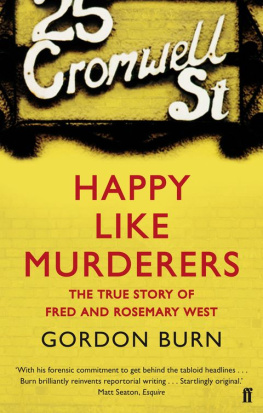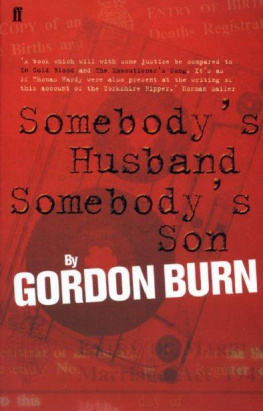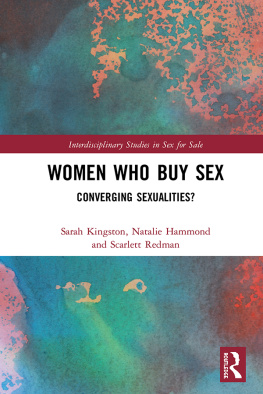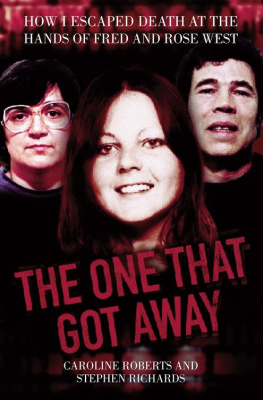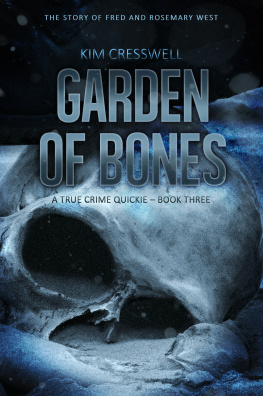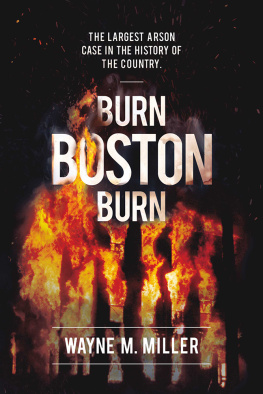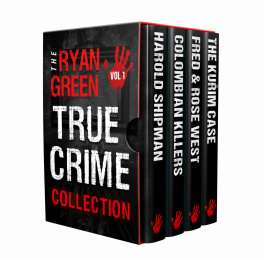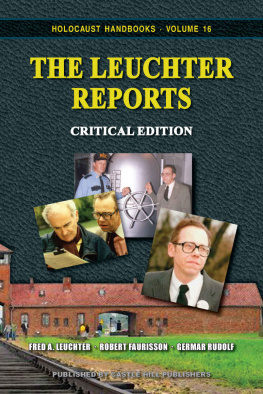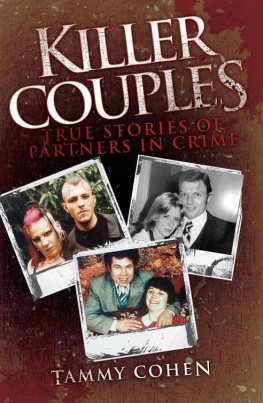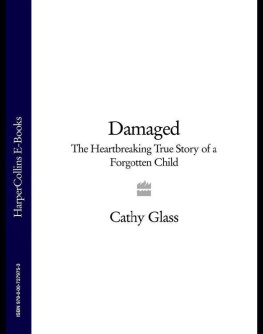Gordon Burn - Happy Like Murderers
Here you can read online Gordon Burn - Happy Like Murderers full text of the book (entire story) in english for free. Download pdf and epub, get meaning, cover and reviews about this ebook. year: 2011, publisher: Faber and Faber Ltd;Faber & Faber;Faber & Faber Non Fiction, genre: Non-fiction. Description of the work, (preface) as well as reviews are available. Best literature library LitArk.com created for fans of good reading and offers a wide selection of genres:
Romance novel
Science fiction
Adventure
Detective
Science
History
Home and family
Prose
Art
Politics
Computer
Non-fiction
Religion
Business
Children
Humor
Choose a favorite category and find really read worthwhile books. Enjoy immersion in the world of imagination, feel the emotions of the characters or learn something new for yourself, make an fascinating discovery.
- Book:Happy Like Murderers
- Author:
- Publisher:Faber and Faber Ltd;Faber & Faber;Faber & Faber Non Fiction
- Genre:
- Year:2011
- Rating:4 / 5
- Favourites:Add to favourites
- Your mark:
- 80
- 1
- 2
- 3
- 4
- 5
Happy Like Murderers: summary, description and annotation
We offer to read an annotation, description, summary or preface (depends on what the author of the book "Happy Like Murderers" wrote himself). If you haven't found the necessary information about the book — write in the comments, we will try to find it.
Happy Like Murderers — read online for free the complete book (whole text) full work
Below is the text of the book, divided by pages. System saving the place of the last page read, allows you to conveniently read the book "Happy Like Murderers" online for free, without having to search again every time where you left off. Put a bookmark, and you can go to the page where you finished reading at any time.
Font size:
Interval:
Bookmark:
Happy Like Murderers
Quedgeley is a suburb on the southern edge the Bristol side of Gloucester. And Carol lived in Quedgeley until the age of four, in a big house surrounded by several acres. Just before she was born, though, the big house had been broken up into bedsits, and the fields closest to the house had become a caravan park.
In those days it was the years following the war; the mid-fifties box-shaped prefabs had been put down on the bombsites and patches of wasteland to provide accommodation for all the demobilized servicemen and their instant young families; and caravan sites had sprung up in fields adjoining many towns and villages for the same reason.
The site at Quedgeley Court was one of these. The vans, as the occupants called them, werent holiday vans, but were occupied all the year round by large, unruly, poorer-off families. Although they had no real reason to, the families living in the house, whose interior walls were no thicker than the caravan shells, considered themselves a slight cut above the van people, who slept in beds that by day became cabinets and tables, and who had to share facilities for bathing and so on.
They were circumstances that intrigued Carol, who would go through her whole childhood and teenage years without knowing what it was like to have anywhere to think of as purely her own. Growing, often warring, families, strangers to each other, were squeezed into living spaces in which every intimate sound was overheard, while green fields stretched away on all sides, apparently doing nothing, towards the horizon.
Carols mothers name was Elizabeth. She would have liked her neighbours at Quedgeley Court and others to call her Liz, but at this point in her life she always got Betty, a name apparently better suited to a pub cleaner, which is what she occasionally was, and a single mother.
Betty Mills had had two children before Carol. The first, Christopher, was what was then known as a blue baby; he had a hole in the heart and lived for only about a year. He also had six fingers on each hand and six toes on each foot, and for his short life was fostered out to a woman called Nanny Munroe who lived on Barnwood Road in Gloucester, close to the Black Dog pub where Betty Mills worked, which made it easy for her to see him. She still got to spend time with Christopher but he couldnt live with her.
Her second son, Phillip, was born in 1953, a year and a half before Carol. Because he was overdue, Phil arrived bright red and covered in fine white hair from head to foot, compared to Carol, who was a big bonny baby with beautiful black curly hair. Their mother was always telling them and other people this as a way of showing how they had been different from the word go, and Phil used to hate it. Used to hate her, Carol was sure, for being their mothers favourite. When she was two, Phil fed her bacon rind and she nearly choked to death. She often wonders now if that was his first show of dislike towards her. In years to come, if it ever happened that they were out at the same place together and his friends were showing an interest, he got that he would pretend to throw up when she walked past him and call her names under his breath. He showed a frightening contempt for her which escalated during her teens. So no closeness there.
The blue babys, Christophers, father was not the same as Phillips and Carols. Phillip and Carol were conceived from the same man, but he was not the man to whom Betty Mills was married at the time.
Her domestic situation was complicated, but complicated in the straightforward way the system would gear itself to handling in the upheavals of the next twenty or thirty years, in a time of more and more multi-parent and serial-parent, accidental, mongrel families.
Betty Mills was married to a man called Raine, and this was the name her children had been given. Albert Raine was a merchant seaman. He was also homosexual. She hadnt known this of course when she married him, but Betty soon deduced it from the friends he brought home. Phillips and Carols natural father, who Betty had been seeing without Bert Raine knowing, was an Irish roadman called Michael Mahoney.
Until the opening of the Severn bridge, Gloucester was the lowest crossing point on the river Severn and all traffic from southern England travelling into South Wales passed through the centre of the city. Likewise traffic travelling the north south route prior to the opening of the M5 motorway. The main shopping streets were permanently choked with tarpaulined, long-haul trucks and lorries, belching fumes, shedding dirt. Michael Mahoney was part of the post-war programme of resurfacing and reconstruction. He was the foreman of a gang of labourers who were laying new roads in Gloucester.
He had made it clear to Betty Mills when Phillip was on the way in 1953 that he couldnt marry her because, leaving aside the fact that she was married herself, there was a girl at home in Cork to whom he had given his promise. But Carol came along eighteen months later, and Betty Mills and Michael Mahoney were still on some kind of terms during the years she was living at Quedgeley Court in the late fifties.
Most of the van dwellers were eventually rehoused on the sprawling satellite estates that had been going up at Coney Hill and White City in Gloucester. But, after a brief period doing menial work on a farm in Painswick and living there with the children, in 1959 Betty Mills found herself having to move in for a time with Michael Mahoney in his council flat in Matson.
It was the kind of rootless and insecure existence that would have bred anxiety in most people. And it is probable that Betty Mills wasnt as unalive to the sense of perilousness and drift in her life as she liked to appear. But stop-gapping and tiding-over, a total absence of stability or direction this was the only way of living she had known. It was the kind of scraping by she had grown up to expect. It was what life had handed her. Hanging on to her children was her only object and aim. When times were bad she would swear to them that she would never put them away or leave them. Really swear it. And this puzzled them, because at that time they were ignorant of the details what they call the roots and shoots of Bettys background.
Her own mother had had a string of children by different men. They were born in special homes for unmarried mothers usually adjoined to a workhouse, then passed over to the authorities for rearing. Betty was born in 1928 and she was the youngest. Two brothers, Syd and Ben, were already in an orphanage, and she soon joined them. Hampton Home, 1 Peewitt Lane, Evesham. Eight boys in one house; eight girls in the other. They lived in separate cottages next door to each other and, although the boys knew that Betty was their sister, they never really had anything to do with her, and vice versa.
As soon as she was old enough, Betty was put to work fetching and carrying, scrubbing floors, skivvying. Every day the same as any other in the flattened landscape of her life. And then, when she was four, an older sister who had gone into service on the Isle of Wight came on a visit. She said she had come to take Betty and her brothers to see their grandparents in Salford Priors in the Vale of Evesham.
They set out on foot and were still walking in open country when dusk started to come down. Even as an old man Syd Mills would remember walking for ever until they came to a wood where the two brothers and the two sisters slept outside the fence. When they woke, they crossed a newly ploughed field towards the lighted windows of a house in the distance. Syd, only six then, could remember looking through the window and seeing a small old man, a big old woman and a man with his feet up on the iron range.
But they were not made welcome. They had walked all the previous night and slept under a hedge before continuing their walk to Grammas just to be made to feel unwanted. They were greeted at the door with a What do you want? Syd and Betty spent the night on the sofa sleeping spoon fashion and he would always remember waking up in the morning and hearing his mother singing The Old Rustic Bridge by the Mill as she cleaned the grate in the hearth.
Next pageFont size:
Interval:
Bookmark:
Similar books «Happy Like Murderers»
Look at similar books to Happy Like Murderers. We have selected literature similar in name and meaning in the hope of providing readers with more options to find new, interesting, not yet read works.
Discussion, reviews of the book Happy Like Murderers and just readers' own opinions. Leave your comments, write what you think about the work, its meaning or the main characters. Specify what exactly you liked and what you didn't like, and why you think so.

